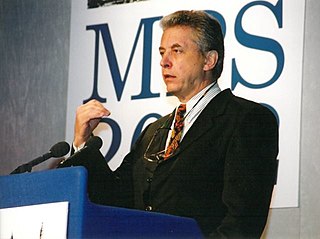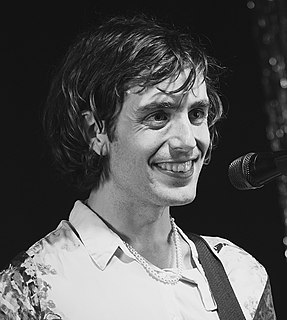A Quote by Barbara Stocking
Funding from rich countries to help the poor and vulnerable adapt to climate change is not even one percent of what is needed. This glaring injustice must be addressed at Copenhagen in December .
Related Quotes
Climate change is...a gross injustice-poor people in developing countries bear over 90% of the burden-through death, disease, destitution and financial loss-yet are least responsible for creating the problem. Despite this, funding from rich countries to help the poor and vulnerable adapt to climate change is not even 1 percent of what is needed.
Climate change hype has grave real world consequences. It gets rich countries to adopt silly policies and to impose devastating eco-imperialism on poor countries. The world's rich millions can afford environmental extremism; its poor billions can't. Climate change pseudo-science about human causality has been exposed repeatedly. What's less appreciated is that there aren't more natural disasters in need of an explanation.
Being told about the effects of climate change is an appeal to our reason and to our desire to bring about change. But to see that Africans are the hardest hit by climate change, even though they generate almost no greenhouse gas, is a glaring injustice, which also triggers anger and outrage over those who seek to ignore it.
The city of Copenhagen is a climate crime scene tonight, with the guilty men and women fleeing to the airport in shame. World leaders had a once in a generation chance to change the world for good, to avert catastrophic climate change. In the end they produced a poor deal full of loopholes big enough to fly Air Force One through.
The great question for our time is, how to make sure that the continuing scientific revolution brings benefits to everybody rather than widening the gap between rich and poor. To lift up poor countries, and poor people in rich countries, from poverty, to give them a chance of a decent life, technology is not enough. Technology must be guided and driven by ethics if it is to do more than provide new toys for the rich.
Money must serve, not rule! The Pope loves everyone, rich and poor alike, but he is obliged in the name of Christ to remind all that the rich must help, respect and promote the poor. I exhort you to generous solidarity and a return of economics and finance to an ethical approach which favours human beings.
If the level and amount of consumption and waste of the western rich countries ever reaches the poor countries, it will mean the end of humanity. The big world corporations are busy doing it...The production, selling, consumption, accumulation, wastes' and advertisement explosions in the western rich countries and the continued population explosion in the poor countries will turn into major catastrophes.
Tackling the issue of climate change presents us with an inflection point in human history - a climate justice revolution that separates development from fossil fuels, supports people in the most vulnerable situations to adapt, allows all people to take part, and, most importantly, realise their full potential.
The fact is that the rich are getting richer while the poor are being left behind. Women remain under-represented in boardrooms and under-engaged in the global workforce. Environmental change is leaving the poorest countries vulnerable. Voters are becoming more and more politically polarised and partisan.
































